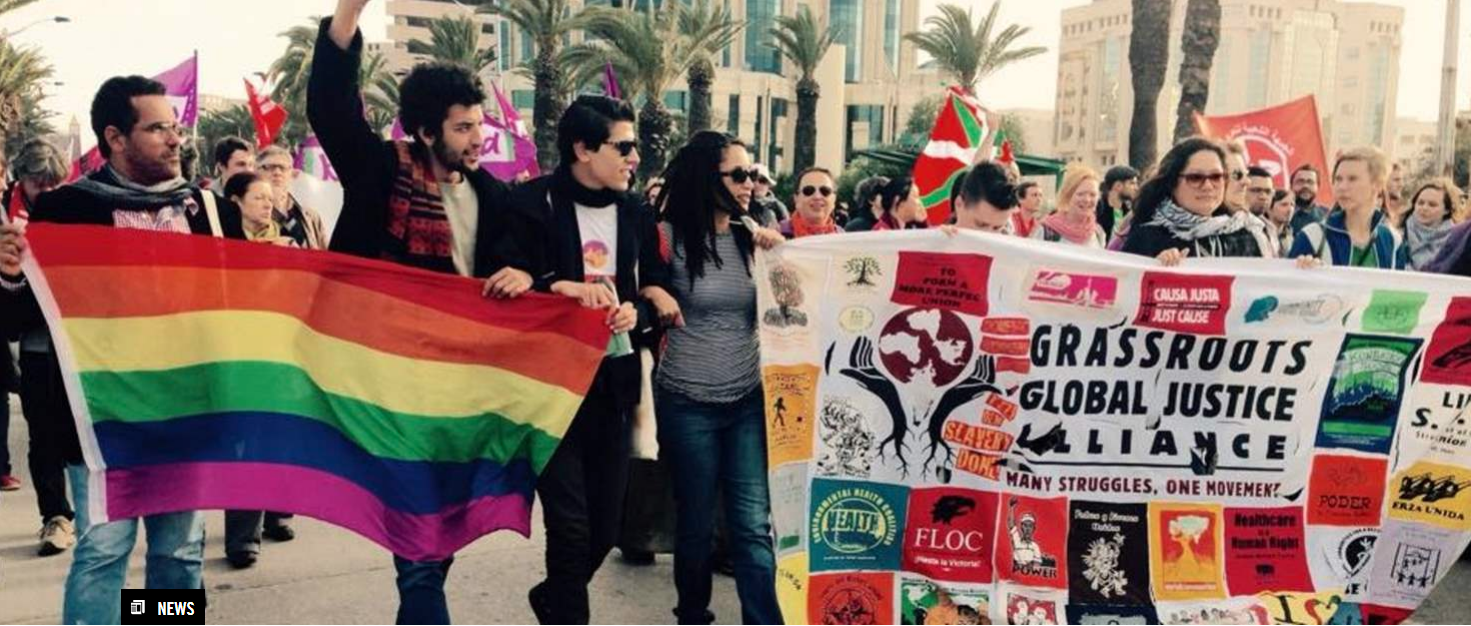The Tunisian government’s attempts to dissolve Shams, a local association that defends the rights of LGBTI people, are a despicable assault on human rights, said Amnesty International, ahead of a court hearing over the organization’s fate tomorrow.
Tunisian authorities have launched an appeal to overturn a 2016 court ruling which concluded Shams was not in breach of the law, following previous attempts to shut the organization down. The authorities appealed the decision on the grounds that Shams’ stated goals contradict Tunisia’s religious principles and culture.
“The Tunisian authorities’ shameful attempts to dissolve the organization Shams are a devastating blow to LGBTI rights in Tunisia and a despicable assault on the right to association and freedom of expression. These efforts expose the Tunisian government’s deeply entrenched discriminatory and homophobic attitudes, which blatantly contradict international human rights standards,” said Magdalena Mughrabi, Deputy Middle East and North Africa Director at Amnesty International.
“Tunisia has been celebrated for being one of the only countries in the region that fosters an open space for civil society. But such judicial harassment casts serious doubt on Tunisia’s commitment to upholding the right to freedom of association.”
Shams, founded in 2015, has been advocating for the repeal of Article 230 of Tunisia’s penal code, which criminalizes same-sex sexual relations. The organization has also condemned prosecutions of gay people involving forced anal examinations, campaigned against discrimination, and provides support to LGBTI people in Tunisia.
In January 2016, the government’s secretary general filed a complaint against Shams on the grounds that its objectives violate Tunisia’s Law on Associations, leading to the suspension of the organization’s activities for 30 days. In February 2016, the Tunis Court of First Instance issued a ruling that Shams was not in breach of the law and lifted the suspension.
Three years later, in January 2019, the Tunisian government appealed the court ruling through a petition from the head of state litigation which states that “the concept of sexual minorities that Shams adopts is illegal and contrary to our religious dictates and our society’s Arabic and Islamic culture.” Shams received the appeal on 20 February 2019.
The appeal petition also accuses Shams of violating a governmental decree by opening a branch in the town of Sousse without following the proper legal procedures.
“Tunisia’s authorities should be protecting organizations that fight all kinds of discrimination and defend the rights of minorities including LGBTI people, not trying to crush them out of existence,” said Magdalena Mughrabi.
“Instead of resorting to judicial harassment to silence Shams, Tunisia’s authorities should be working to urgently revise discriminatory laws to bring them in line with international human rights standards. They must start by repealing Article 230 and decriminalizing same-sex sexual relations.”
Article 230 violates Tunisia’s own constitution, which guarantees the right to freedom of association and equality between all citizens, as well as breaching the country’s international human rights obligations. The impact of this law also creates a permissive atmosphere for hate crimes against people suspected of engaging in same-sex relations.
Despite the fact that a draft law to decriminalize same-sex relations was submitted to Tunisia’s parliament last year, LGBTI people continue to come under attack.
During 2018, at least 115 people were arrested in relation to their perceived sexual orientation or gender identity, according to Damj, a Tunisian NGO working on LGBTI rights. At least 38 people were later charged and convicted under Article 230. Arresting and detaining someone based on their sexual orientation or gender identity is a violation of their human rights.
The police also continue to subject men accused of same-sex relations to forced anal examinations, in violation of the prohibition against torture under international law. Trans people continue to face harassment from the police and live in constant fear of being arrested under vague laws relating to public decency.
For more information please contact:
Lucy Scholey, Amnesty International Canada (English): + 613-744-7667 ext. 236; lscholey@amnesty.ca






















